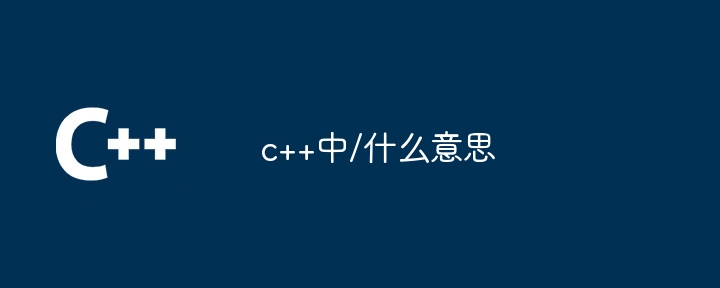Home >Backend Development >C++ >What does / mean in c++
What does / mean in c++
- 下次还敢Original
- 2024-04-28 17:15:201191browse
The "/" symbol in C represents the division operator, which is used to calculate the quotient of numbers and can be used in various scenarios, including iterating over array or container elements. It follows the syntax of "result = dividend / divisor", where result is the quotient, dividend is the dividend, and divisor is the divisor. Note that division by 0 is illegal, integer division truncates decimals, and floating-point division requires at least one floating-point input.

The meaning of the "/" symbol in C
In C, the "/" symbol represents the division operator , used to divide one number by another number.
Uses
The division operator can be used for the following purposes:
- Calculate the quotient of two numbers.
- Convert a number to a floating point value.
- Iterate over array or container elements.
Syntax
The syntax of the division operator is:
<code class="cpp">result = dividend / divisor;</code>
where:
-
resultis the quotient. -
dividendis the dividend (the number to be divided). -
divisoris the divisor (the number to divide by).
Example
The following code demonstrates the use of the division operator:
<code class="cpp">int dividend = 10; int divisor = 2; int result = dividend / divisor; cout << result << endl; // 输出:5</code>
Notes
- Dividing by 0 is undefined behavior.
- If both numbers are integers, the result is also truncated to an integer (i.e. the decimal part is discarded).
- To perform floating point division, at least one input number must be a floating point value.
The above is the detailed content of What does / mean in c++. For more information, please follow other related articles on the PHP Chinese website!

